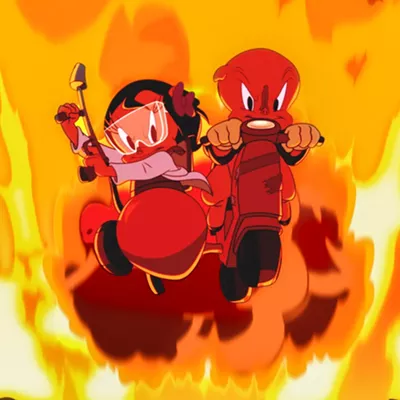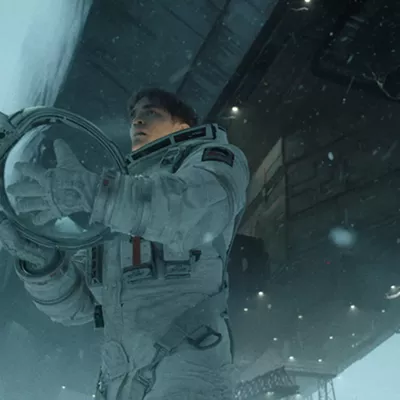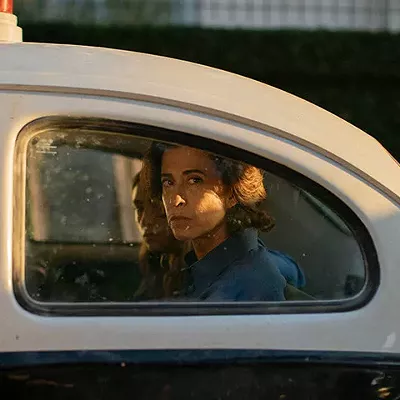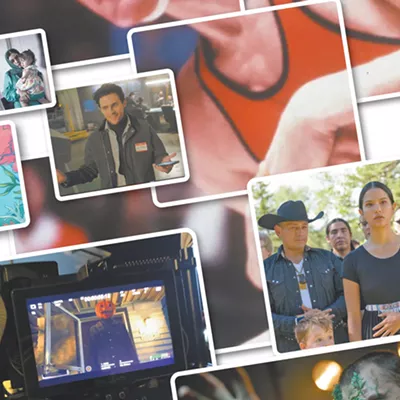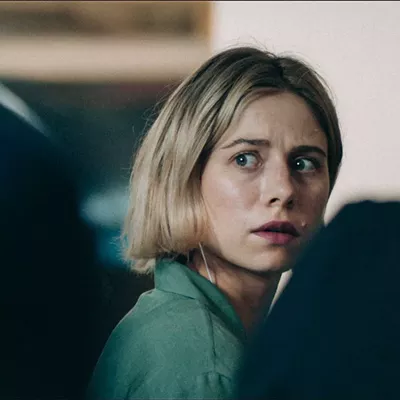There are few mainstream films you'll see as immense as Martin Scorsese's Killers of the Flower Moon. This is not a reference to its runtime of 3 hours, 26 minutes (of which it deserves absolutely every second), but to its ambition. Taking on a bloody chapter in America's violent trajectory nearly erased from our collective memory because of those who would rather see it forgotten, it is a confrontation with the colonialism, greed and betrayal at the core of this country. Specifically, it takes us back to the 1920s when members of Oklahoma's Osage Nation were murdered for the wealth they acquired after being forcibly displaced onto land rich with oil. Crucially, it is not some twisty mystery to be solved. Instead, it's about the unending cruelty and exploitation happening in plain sight. In other words, it is the story of America with all its stomach-churning hypocrisy and brutality on full display.
At the heart of this is Mollie Kyle, played by an always revelatory Lily Gladstone (a relative unknown, seen previously in 2016's Certain Women and this year's The Unknown Country), whose family and life are under threat from those seeking to take all they can from the Osage people. She must get approval to spend her own money and marries a white man in an arrangement that's sinister right from the start. Her new husband Ernest Burkhart (Leonardo DiCaprio) is a greedy man willing to do just about anything for money. He claims to love Mollie though will always defer to his uncle William Hale (played by Scorsese standby Robert De Niro), who has made himself "King" and weasels his way into Osage business for his own self-serving ends.
What makes Killers of the Flower Moon so shattering is the measured yet menacing way this all unfolds. Time begins to slip away for Mollie as she desperately tries to take action to stem the tide of death. Perfectly embodying her character, Gladstone is outstanding even as she often fades into the background the longer that the film goes on. This is less a criticism as it is a call for people to seek out her other aforementioned work as well as the upcoming Fancy Dance, which ought to get as much attention as this film for how it more fully brings her to the forefront.
That being said, every scene we get with Mollie is flooring because of how perpetually good Gladstone is. There is never a moment that feels wasted as every single choice she makes brings us further and further into what could otherwise be a thankless part, one that she molds into something magnificent. One scene toward the very end between her and DiCaprio brings this into focus as her final resonant lines cut his gutless man down into nothing.
How Scorsese navigates all of this is similarly focused as he remains both willing to take bold risks and never let a moment rest without drawing us deeper into the moral rot that runs through all the beautifully shot landscapes. Just as there is oil bursting free from the land, there is a poison at the core of this history that steadily takes hold. As he has throughout his past films, Scorsese makes room for potent reflections on the immense cost of this cruelty.
This includes one of the most unexpected yet effective endings he's ever done, taking one of his biggest swings in a career that's never lacked them. The precise details of this require being somewhat vague, but it sees the veteran filmmaker acknowledging his own part in the story being told in a manner that's not entirely uncritical. Such a moment and the way it operates in conversation with the entire journey of the film proves to be as devastating as anything Scorsese has ever done. It is a moment of deep mourning in which the historic loss that the film excavated piece by piece is put together in one final acknowledgement of a wound that may never fully heal. ♦




